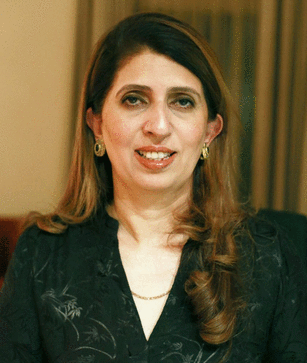Article Text
Statistics from Altmetric.com
Biography
Dr. Shabnum Sarfraz is Senior Advisor for Health Systems and Policy Research at P2Impact Associates and Member Social Sector & Devolution, Planning Commission, Government of Pakistan, Islamabad. She is one of the Inaugural 2019 Jane Jie Sun Women in Global Health LEAD Fellows at Harvard University where she conducted research into barriers to women in health career advancement in Pakistan. Her work focuses on health systems management and policy reforms and she has managed large-scale, high-impact health projects while working with the government of Pakistan and partners such as DFID, USAID, and WHO. Shabnum holds a degree in medicine from Pakistan and an MBA from the University of Surrey.

First and foremost, are there any key leadership messages you want to get out to our readership?
I work for the Planning Commission at the Government of Pakistan and we are really having to think outside the box in dealing with COVID-19, but, somehow, this pandemic has provided us with an opportunity to shift the focus to where the priorities should have been all along. For example, I look after the education portfolio at the Planning Commission at the national level. Before the pandemic, we had been asked to be innovative in our approach, but there was little innovation in the way we were running things. When COVID-19 hit and the educational institutions got closed, we were worried about all the children out of school and the disruption to their education. However, what we saw was all the interventions brought in to address this, like tele-education. We have a television channel now in Pakistan, ‘Teleschool’,1 which children are ‘attending’ because not all schools and children have online access. It makes me think how great this is for addressing the digital divide. How can we better use technology for bringing in innovative modes of education? We are not only enhancing access, but also equity of access, as now …
Footnotes
Author note Interview conducted by RA on 10 May 2020 behalf of BMJ Leader.
Twitter @RahAhmad
Contributors RA and Ms Sara Yadav edited the transcript.
Funding The authors have not declared a specific grant for this research from any funding agency in the public, commercial or not-for-profit sectors.
Competing interests None declared.
Provenance and peer review Not commissioned; internally peer reviewed.


